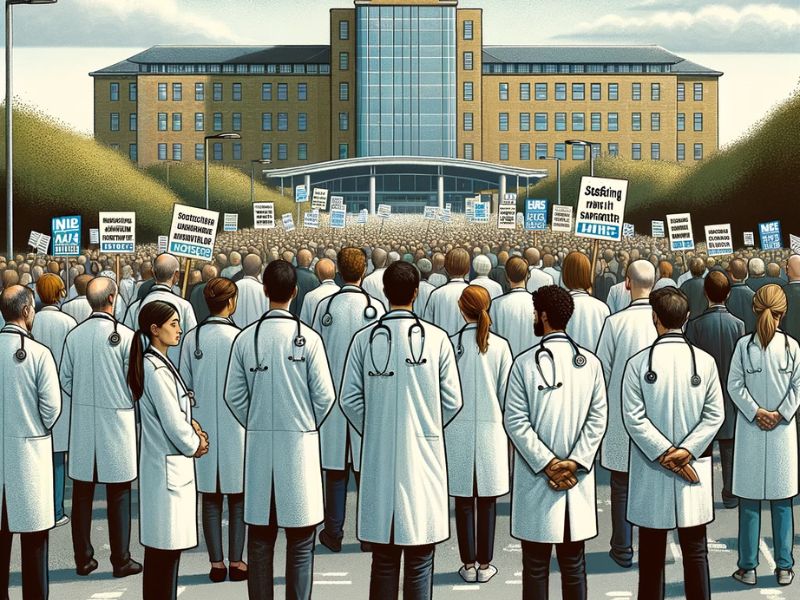
Doctors' strike in England, the longest in NHS history
Over 330,000 Appointments Canceled in London as Junior Doctors Protest
A Critical Moment for the NHS
The National Health Service (NHS) in England is facing one of the most challenging periods in its seventy-five-year history due to the strike by junior doctors, which began on January 3rd and is expected to last for six days. This strike, the longest ever recorded, comes at an already complicated time for the NHS, exacerbated by seasonal pressures such as influenza and Covid, along with staff absences. Junior doctors, who represent around 50% of doctors in the NHS, are demanding a pay increase to counter the decline in purchasing power caused by inflation.
Demands of Junior Doctors
Junior doctors are calling for a “full restoration” of salaries to compensate for real cuts suffered since 2008/9, a new pay mechanism to prevent future decreases in relation to inflation and the cost of living, and a reform of the salary review body for doctors and dentists to provide independent and fair salary recommendations. These demands come in response to a real cut in salaries of 26.1% from 2008 to 2022. The government had offered an 8.8% increase last summer, with an additional 3% during the latest round of negotiations, but the offer was rejected by doctors.
Impact on the National Health Service
The impact of this strike on the NHS is significant. Tens of thousands of appointments and surgeries have been canceled across England and Wales. To cope with the absence of junior doctors, senior doctors and other healthcare workers have been called in to cover emergency services, critical care, and maternity services. This strike adds to a series of protests in the British healthcare sector, with a substantial impact on services already under pressure to catch up on delays caused by the coronavirus pandemic.
Response of the NHS and the Government
NHS leaders are urging the government to provide guidance on finding a way out of the industrial action impasse. Despite the NHS’s intensive preparation to handle the strike, the reduction in scheduled activity means further delays for patients who have already faced long waits for routine treatments. NHS leaders have requested prompt responses from unions to the junior doctors’ call to cover urgent services.
Sources


